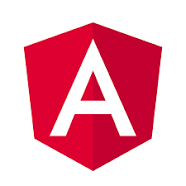Angular is a popular open-source web application framework maintained by Google and a community of developers. It is widely used for building dynamic single-page web applications (SPAs) and large-scale enterprise applications. Angular is written in TypeScript, a superset of JavaScript, which allows developers to leverage static typing and object-oriented programming features.
Angular provides a comprehensive platform for developing client-side applications by offering a structured and modular approach.
Its rich ecosystem and active community support make it a preferred choice for developers working on web projects of all sizes and complexities.

1. Component-Based Architecture
2. Two-Way Data Binding
3. Dependency Injection (DI)
4. Directives
5. Services
6. Routing
7. HTTP Client
8. Forms
9. Testing
10. CLI (Command Line Interface)
Angular Components
Templates and Data Binding
Directives
Services and Dependency Injection
Routing and Navigation
Forms in Angular
HTTP Client
State Management
Unit Testing in Angular
End-to-End Testing
Angular CLI
Angular Best Practices and Patterns
Deployment and Hosting
To excel as an Angular Developer, proficiency in the Angular framework, HTML and CSS, RESTful APIs, TypeScript, RxJs, npm, and GitHub repository management is essential. Mastery of these skills is crucial for constructing highly responsive and scalable web applications using Angular. Embarking on an Angular course for beginners is an excellent starting point to gain a thorough understanding of the Angular framework and its efficient implementation in building exceptional web apps.
Angular is a TypeScript-based open-source web application framework primarily maintained by Google. It simplifies and streamlines the development of single-page applications (SPAs) by providing a structured framework for building dynamic, responsive user interfaces.
Angular organizes code using modules, which are containers for related components, directives, pipes, and services. Modules help in managing dependencies, encapsulating functionality, and facilitating modular development within Angular applications.
Angular's popularity in web development stems from its robust features such as two-way data binding, modular architecture, dependency injection, and comprehensive CLI support, enhancing productivity and scalability in building dynamic and responsive web applications.
Angular employs modules as containers for organizing related components, directives, pipes, and services, facilitating modularity and dependency management within applications. Modules enhance code maintainability, scalability, and facilitate the creation of reusable components across Angular projects.

Unlocking Potential, Shaping Tomorrow.
#41, First Floor, Karunanidhi Street, Nehru Nagar, Velachery Checkpost, Chennai – 42.
Phone no :
+91 88389 33381 , +91 9791275433
Email :
sales@iglowsoft.com
WhatsApp us
